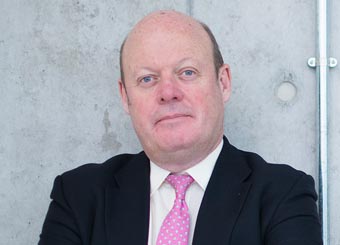As President Donald Trump settles into office with a series of unilateral executive orders – including the travel ban on anyone from seven Muslim-majority countries and suspension of the US refugee programme – four of our academics write opinion pieces on his likely impact on international relations, the global economy, global inequalities and climate change.

Former US Secretary of Defense Donald Rumsfeld famously referred to “things we know we know”, things “we do not know” and “unknown unknowns”.
Any analysis of Trump’s presidency to date might include a list of concerns regarding things we know he will prioritise, such as immigration, domestic economy, and an ‘America First’ approach to foreign relations.
Such a list might also include things we do not know, for example regarding his eventual direction on equality issues and health care provision, but also issues regarding his relationship with Putin, or Trump’s possible financial conflicts of interests.
The Republican Congress currently seems comfortable with all of these categories and possibilities. They eagerly anticipate enacting legislation to roll back environmental and financial regulations, to repeal ‘Obamacare’, and to defund programmes such as Planned Parenthood, the National Endowment for the Arts, and most government research projects.
But, for political scientists, the primary concern is with the “unknown unknowns”.
Trump seems to be working outside the box of normal protocol, basic ethics, or formal decorum of the Office of the President of the United States. Alongside his nationalist, isolationist, radical free-market posturing, it’s this latter category of “unknown unknowns”, to echo Rumsfeld, that tends to be the most worrisome.

Despite the ‘Trump bump’ experienced by US financial markets in recent weeks, fuelled mostly by expectations of deregulation and tax cuts, the Trump presidency bodes ill for the world economy.
The protectionist rhetoric laid out in the Navarro-Ross paper in support of Trump’s policies, which Larry Summers recently referred to as being “well beyond voodoo economics... and ... the economic equivalent of creationism,” could start a global trade war.
Indeed, as it stands, Trump’s plan includes features that would make a new tax regime operate like a tariff on imports into the US, combined with a subsidy on many exports from the US.
If there is widespread retaliation by foreign countries in the form of imposing tariffs on US exports, then any short-term gains to the US from the so-called ‘border tax’ (which may not even be consistent with current international trade regulations) would be eroded over time. In that event, world trade would be disrupted and all countries would end up being worse off.
The thought that the future of the world economy depends on the whims of an unpredictable president and a fractious US Congress is disturbing; but there is some hope if disengagement by the US creates opportunities for others (especially China) to step up and take on a greater leadership role.

Donald Trump’s potential to address global inequalities is worrying – considering plans to reduce taxes on corporations and the super-rich, to repeal the Affordable Care Act (Obamacare) and withdraw from the Paris Agreement on Climate Change, to his anti-immigrant and misogynistic comments and, disturbingly now, policies.
Yet are there any optimistic factors which suggest the Trump’s administration’s impact on global inequality might not be as bad as initially feared?
The domestic backlash to Trump, possibly underestimated, will seek to push the country in a more inclusive direction. Despite his likelihood of favouring particular elites, Trump has invoked reaching out to ‘left-behind’ people in the heartland of ‘fly-over’ America. Trump’s approach won’t produce greater domestic economic, social or cultural inclusion, yet his emergence is a fundamental warning of the need to pay attention to domestic marginalisation of various kinds. It also augments the need for, and re-energises mobilisation around, anti-racism, anti-xenophobia, gender inclusivity, environmental awareness and pro-democracy.
What about internationally – where the vast majority of global inequalities lie in terms of differences between countries – will Trump’s impact be moderated?
Despite rising inequalities within many countries, China and India have been driving some declines in global inequality since the 1990s by reducing average differences across countries. A permissive international environment has helped. While Trump could have a destabilising effect on such a trend, and on international agreements (such as Paris) and organisations (such as the UN), we can hope his impact will be more modest than it might once have been.
Let’s hope for the optimistic outcome…

The 2015 adoption of the Paris Agreement during COP21 (Conference of Parties to the United Nations Framework Convention on Climate Change) was an important step the international community took to address the global climate challenge.
On 3 September 2016, Barack Obama bypassed the Senate to ratify this agreement. It officially came into force on 4 November. Five days later, Donald Trump was declared president-elect.
For the thousands of negotiators, scientists and activists that have worked hard to ensure there is at least a modicum of policy in place to tackle global climate change, a Trump presidency threatens to derail crucial steps taken in recent years.
Trump has vowed to ‘end the war on coal,’ open all federal lands and waters to drilling, and famously called climate change a ‘Chinese hoax.’
He has further demonstrated his position on climate change through the appointment of fossil fuel advocates Rex Tillerson and Scott Pruitt to his cabinet.
At midday on 20 January 2017, as Trump was sworn in as the 45th President of the United States, all mention of climate change was deleted from the White House website.
Now that the Republican Party controls all branches of government, there is a very real fear of what a Trump presidency could mean for international climate action. There may be a ripple effect in other countries if the US reverses the commitments it made in Paris.
There is the (slight) hope that the US will be held to its obligations by countries such as China, or by the EU. However, with Trump’s promise to eliminate “harmful” and “unnecessary” policies like the Climate Action Plan, hope seems to be fading further away.





